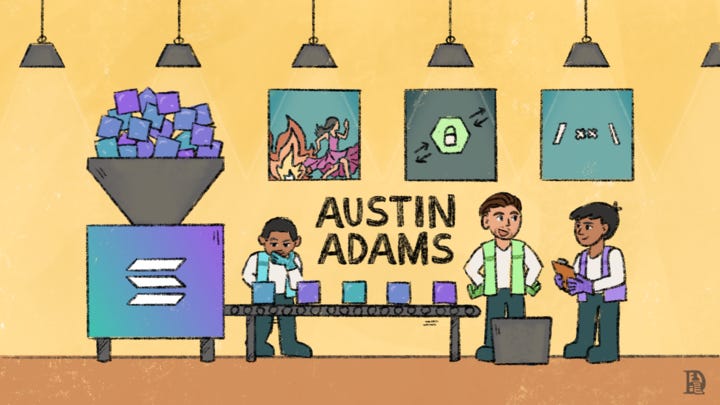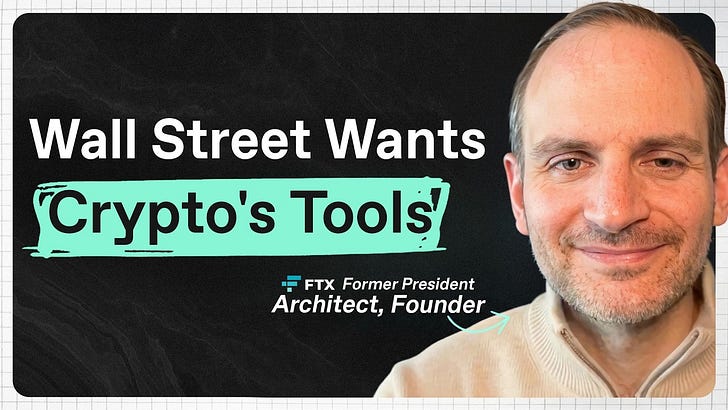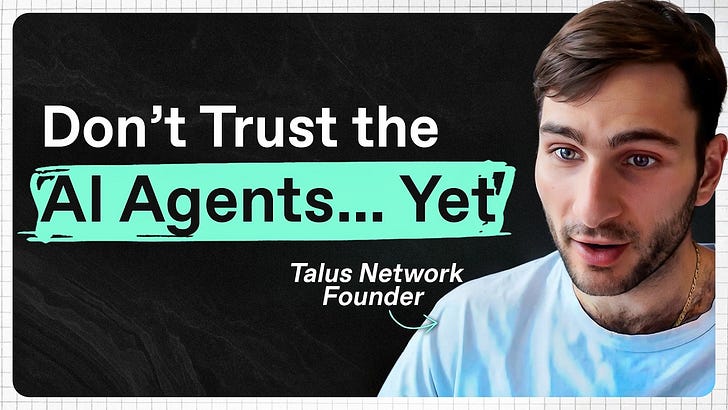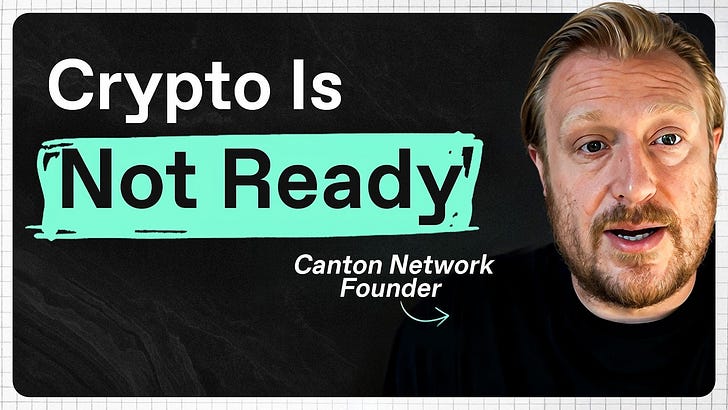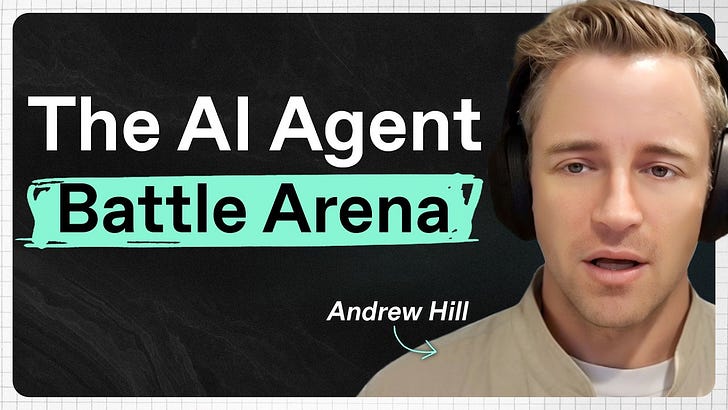Hey there!
It seems Solana often suffers from the weight of its success.
Because of network effects - builders, users, developers, and activity tend to congregate in specific hotspots. As a layer 1 blockchain boasting some of the highest speeds and lowest costs, combined with a resurgence in price and attention, Solana has emerged as one of those hotspots over the past few months.
Memecoins, NFTs, airdrops, DePin, and DeFi - Solana is seeing it all.
But we must remember that Solana is a product that is technically still in beta, operating in uncharted territory. The influx of activity is overwhelming the chain. If you have used Solana over the past month, you have likely experienced dropped transactions.
In our quest to better understand these performance issues, we wanted to chat with someone who operates in the weeds of Solana’s tech.
Our guest for the episode is Austin Adams from Anagram - a crypto investment firm and think tank. Austin earned his stripes as a developer across a range of web2 domains. He came across Solana when working on an Internet of Things (IoT) project. He led protocol development at Metaplex, a team that contributed to the first NFT standard on Solana.
Use the links below to listen to get straight into the conversation.
In our chat, we cover the reasons for Solana’s congestion, fixes that have already gone live, and other measures in the works that will further alleviate the problem. We also discuss the highly anticipated Firedancer client and the state of L2s on Solana. Austin also helps us get up to speed on the developments of ZK projects on Solana.
This is a technical discussion. If you’re new to the Solana ecosystem, we recommend reading our past articles on Solana to get adequate context.
Listen to the podcast to learn what is being done to fix transaction issues on Solana and what the protocol's future may look like.
Enjoying Runes,
Saurabh Deshpande
If you liked reading this, check these out next:




